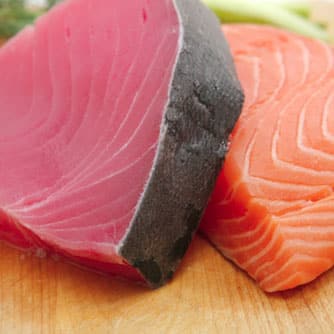Salmon, tuna, and sardines are types of “fatty fish” – abundant sources of omega-3 fatty acids. Mounting evidence suggests that these healthy fats may exert a range of benefits on various body systems. Maria Lankinen, from the University of Eastern Finland (Finland), and colleagues enrolled 131 men and women, ages 40 to 70 years, with body mass index (BMI) of 26-39 kg/m2 and impaired glucose metabolism and features of the metabolic syndrome in a parallel study of 12-week periods. Participants were assigned into three groups: to consume a wholegrain and low post-meal insulin response grain products, fatty fish 3 times a week, and bilberries 3 portions per day; to consume wholegrain and low postmeal insulin response grain products; or to consume refined wheat breads as cereal products. The researchers assessed the subjects’ serum metabolic profiles to ascertain lipoprotein changes. The data revealed that increasing the intake of fatty fish increases the number of la high-density lipoproteins (HDL) – “good cholesterol.” Specifically, subjects who increased their intake of fish to 3 weekly meals had more large HDL particles in their blood. Observing that: “The results suggest that consumption of diet rich in … fatty fish causes changes in HDL particles shifting their subclass distribution toward larger particles,” the study authors conclude that: “These changes … could partly explain the known protective effects of fish consumption against atherosclerosis.”
Fish-Rich Diet May Raise Good Cholesterol
Maria Lankinen, Marjukka Kolehmainen, Tiina Jaaskelainen, Jussi Paananen, Laura Joukamo, Antti J. Kangas, Pasi Soininen, et al. “Effects of Whole Grain, Fish and Bilberries on Serum Metabolic Profile and Lipid Transfer Protein Activities: A Randomized Trial (Sysdimet).” PLOSOne, 28 Feb 2014.
RELATED ARTICLES




